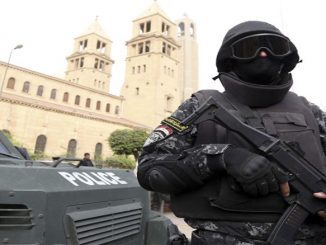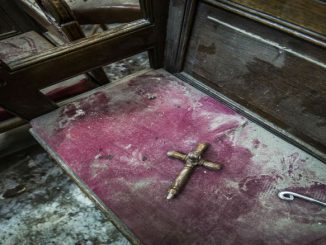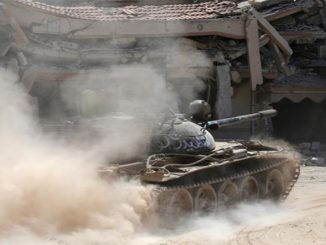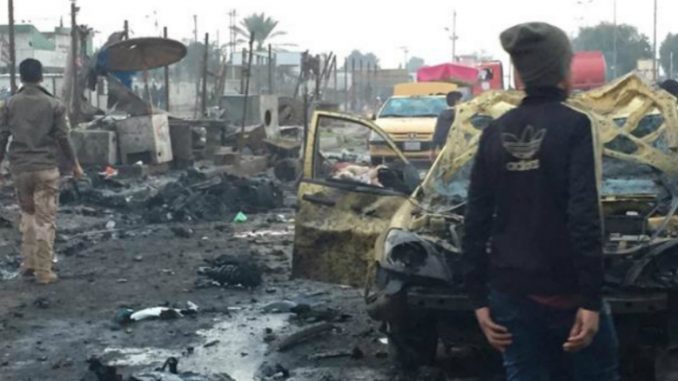
A suicide bomber detonated a car loaded with explosives in northern Baghdad on Wednesday killing at least nine people, two days after a demonstrations by thousands that ended with civilian deaths and intra-Shiite tension.
The powerful blast in the Habibiya area, near Sadr City which is a Shia-majority neighborhood in the Iraqi capital, killing at least nine people while thirty others were wounded.
The explosion targeted a crowded street full of garages and used car dealers.
The attack came a day after a car bomb explosion in southern Baghdad killed at least four people.
There was no immediate claim of responsibility for Wednesday’s blast, but nearly all suicide attacks are claimed by the Islamic State. However, after the demonstrations two days ago suspicions may point to other sides in Iraq.
The Iraqi capital was rocked by a wave of deadly suicide bombings during the first days of 2017 but relatively few explosions had been reported since.
Suicide bombings on January 8 hit two marketplaces in eastern Baghdad killed at least 20 people. ISIS claimed the first attack in an online statement saying the bomber had targeted “a gathering of Shia” in Jamila.
On January 2, ISIS claimed responsibility for a suicide car bombing that killed 39 people in a busy market in Sadr City.
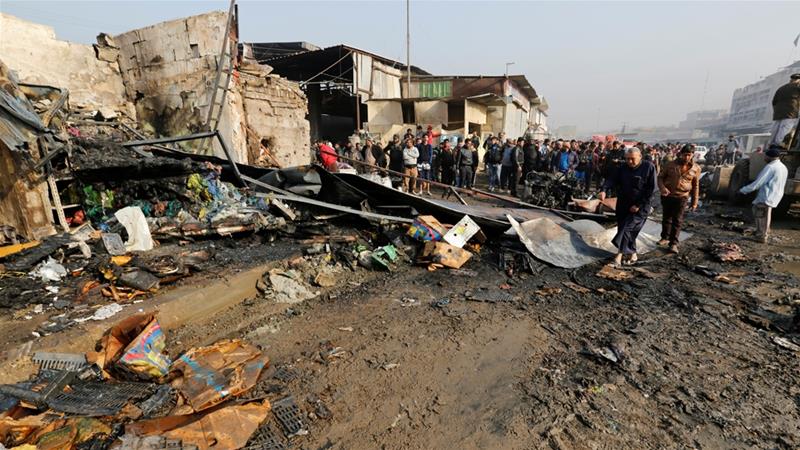
Demonstrations in Baghdad
Iraqi security forces fired tear gas and rubber-coated bullets at thousands of supporters of Muqtada al-Sadr, an influential Shia leader, who were demonstrating on Saturday near Baghdad’s Green Zone to press for electoral changes.
Sadr has accused the elections commission of being corrupt and called for the commission’s members to be changed, according to a statement from his office.
The clashes broke out as the protesters, who responded to Sadr’s calls, attempted to cross the bridge that links Tahrir Square where they had gathered and the heavily fortified Green Zone, which houses government buildings, embassies and international organizations.
At least 320 protesters and seven police officers were wounded as violence gripped the rally, while At least five protesters and two policemen were killed.
In a statement reacting to the killing of his followers on Saturday evening, Sadr said: “Their blood won’t have been shed in vain.” He promised “peaceful” retaliation.
Sadr says the electoral commission is favorable to his Shi’ite rival, former prime minister Nuri al-Maliki, a politician close to Iran whom he accuses of corruption.
“We will not give in to threats,” said Serbat Mustafa, the head of the electoral commission, in an interview with a local Iraqi television channel on Saturday afternoon.
Mustafa said he would not offer his resignation and accused Sadr of using the commission as a political “scapegoat”.
The growing tensions come at a bad time for Prime Minister Haider al-Abadi who is trying to focus on a critical battle with Islamic State in Mosul, the last major urban stronghold of the Sunni militants in northern Iraq.
Haider al-Abadi, Iraq’s prime minister, called on the demonstrators to remain peaceful and to “abide by the law”.
Abadi ordered an investigation into the violence amid claims by the Interior Ministry that some demonstrators carried firearms and knives. Sadr insists his followers were peaceful.
However, the latest bombing may have been used by ISIS to increase the inter-Shiite tension at this critical time or was used by political opponents to achieve political gains against each other.

